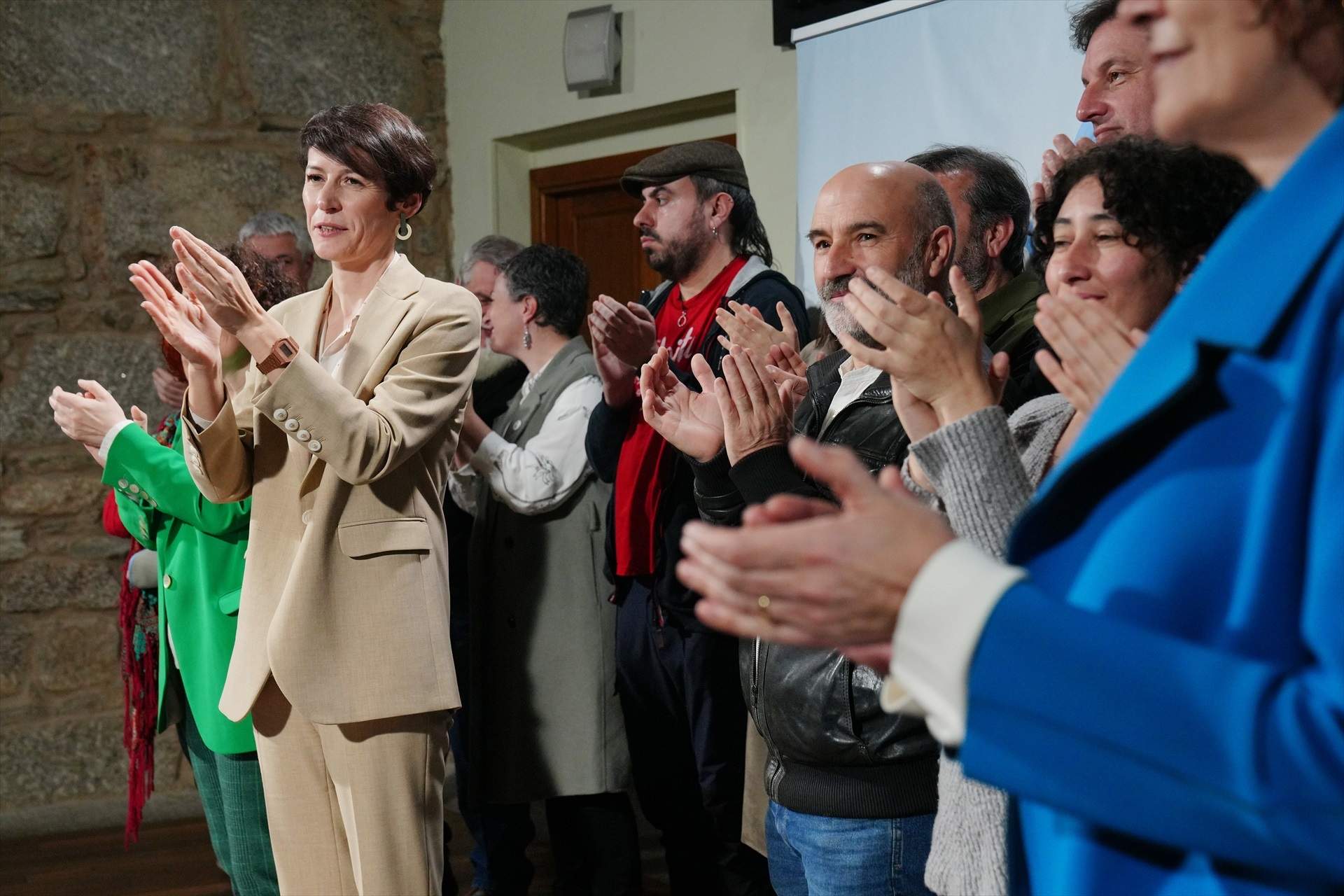"Changes sometimes take time, but you have to push for them. And this Sunday the BNG's real alternative has had a very clear push, and this energy will bear fruit in the future". With a speech aimed at encouraging those who "may feel disappointed" - and to whom she wanted to make it clear that "there is no reason for this, because there is [now] a solid alternative to the PP" - the leader of the Galician Nationalist Bloc (BNG) Ana Pontón reaffirmed the party as the "indisputable" alternative to Alfonso Rueda and the only force "capable of contesting the hegemony of the PP". The day after a Galician election that certified the absolute dominance of the People's Party but also catapulted the BNG, the Galician nationalists argue that it is necessary to "continue to expand the base of the BNG and add more people around this alternative". Pontón asserted that the 18th February election has set in motion "a new cycle in which the BNG is the point of reference for all those who think that another Galicia is possible".
Ana Pontón was also very critical of the messages disseminated by the PP throughout the electoral campaign. "Political criticism is one thing and discrediting, lies and defamation are another," she exclaimed. The candidate asserted that "not everything is worth it in politics" and announced that they will consider taking legal action against the PP for calling them terrorists. She criticized that the Spanish conservatives had "demonstrated that they wanted to play more with fears than with their own proposals" and she was convinced that the BNG "ran the campaign it had to run". "The [PP] fear campaign did not prevent thousands of people from voting for the BNG with great enthusiasm", she replied.
Additionally, the BNG, which is currently an almost essential partner for Pedro Sánchez in the Congress of Deputies, claims that the Galicians deserve "a little respect" in the readings made of the electoral results: "The PP wants to tell a story that has nothing to do with reality. In a context in which the PP focused a lot on attacking us, Galicia has just said that it is committing itself to a nationalist force. The result was not about Madrid, nor Sánchez, nor Feijóo, it was about Galicians and any reading that does not come from this point of view is wrong and biased”. Asked about the poor results of the Galician Socialists (PSdeG), Pontón wanted to avoid bad blood and limited herself to responding that Sunday's election makes it clear that "the force that brings people together, generates hope and represents the alternative to the PP is the BNG".
Unprecedented results, but insufficient to reach government
Galician nationalism comes away from Sunday's elections with a bittersweet feeling: the improvement in its results, the fact of establishing itself as the broad church of Galician nationalism as well as having becoming, some time ago, the main reference point for the left in Galicia have not been enough for the party to bring change to the institution of Galician government, the Xunta. The BNG did its homework and won more than 460,000 votes, 31.5% of the total (eight percent more than in 2020), meaning it grew by six deputies to take a total of 25 seats. Never before had so many people put the BNG paper in the ballot box, never before had Galician nationalism received the trust of almost one in three voters and never has it had so much representation in the Pazo do Hórreo parliament. Ana Pontón emphasized that these results illustrate that the BNG, which has "achieved an historic result" for the second consecutive time, "has no electoral ceiling". However, the mobilization achieved by Pontón was insufficient to unseat the PP from the Xunta - the incumbent party fell from 42 to 40 seats, but still achieved a majority (minimum 38) - and that, in addition to the poor results of the PSdeG, which hit rock bottom after losing five seats and obtained the worst result in its history, prevented an alliance of the left in Galician capital Santiago de Compostela.
One of the other unknowns hovering over the elections was the impact that the division of the left would have and how the decisions of Sumar and Podemos to present separate candidacies could affect the results and harm the electoral prospects of the BNG. In the end, not at all: the two parties further to the left of the PSOE obtained just over 30,000 votes and were far from any possibility of obtaining representation. Sumar, with 28,000 votes, had less support than Vox, while Podemos, with only 3,800, finished behind the animal rights party PACMA. Despite the fact that the BNG did not take the Xunta, the calls to concentrate the vote and to embody the change in the figure of Ana Pontón had an effect.

